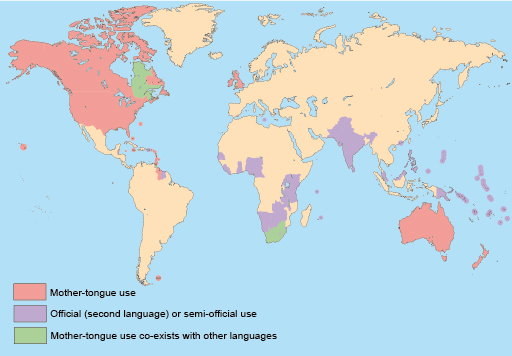The beginnings of English (Part 2)
Fast-forward one and a half millennia and English is now spread extensively across the globe. Today it is used, in one form or another, by more people, in more areas, and for a wider set of purposes, than any other language. That unnamed language which began life as a parochial dialect spoken by one faction of a group of invading tribes from northern Europe now has a status unmatched by any other language on earth. The question this raises is how and why this dramatic shift took place. What happened to transform English from that small parochial language into the pre-eminent medium of international communication in the modern world? Why has this particular language, from all the other countless systems of speech that the human race has developed throughout its history, risen to such a position of prominence?
The emergence of English as a global language is not the end of the story, though. The fact that English is now established as an important linguistic force in countless communities around the world does not mean that there is little more to say about it. Nor does it mean that those same processes of change and development that brought the language to this position are not still happening.

